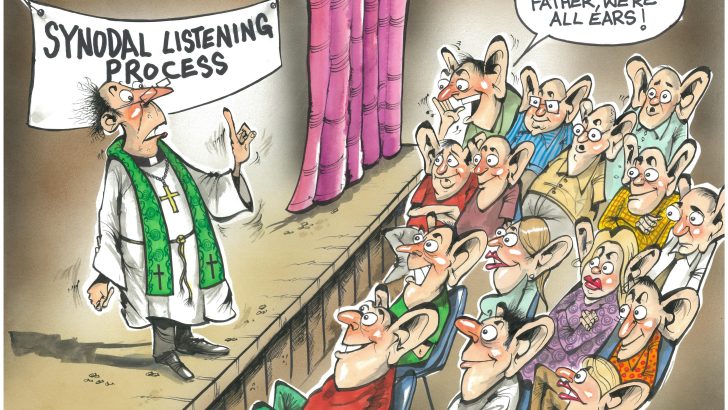The leadership of the Irish Church needs now to demonstrate clearly that it has heard the voice of the laity and clergy, so clearly expressed in the national synodal listening process. Furthermore it needs to be demonstrably accountable to the laity and clergy as the Archbishop of Dublin has said, ownership is passing from clergy to lay. We need theory to become reality, the time for rhetoric is over.
The charism of leadership has been bestowed on the bishops for a reason, by the people of God for the good of the Church. The old ways of clericalism do not have the answers for today’s Church and only a genuine inclusive and honest engagement will work. We don’t need to wait for a Synod of Bishops in Rome in 2023 or for the Pope to issue new decrees for change to happen. The answers may not come from Rome, but they have come from the people of faith in Ireland. In the Ossory Diocese the Synthesis says that “Some of what is contained in this first phase of this synthesis is actionable locally or even nationally”.
This is because the issues raised by the Synodal Listening process in Ireland have been around for 40 years and people have been saying the same things over and over, pointing to the same issues and asking for visionary leadership for those 40 years as research by Fr Eugene Duffy in The Synodal Times shows. These are not voices from the periphery, they can’t be dismissed as angry non-practising Catholics, they are the collective voice from the practicing pews. And to date their voices have mostly fallen on deaf ears, or having been heard, nothing has happened.
For 40 years excuses have been made; the time isn’t right, we need to discern further what the Holy Spirit is saying and so on. The Holy Spirit has been roaring and yet here we are today still asking, even with a Pope behind us, will you the Irish bishops lead the change? The issues are clear, the people have spoken.
Issues
Time and time again in the Synodal replies people have expressed the fear that this process will go nowhere. Where is the accountability that has been seriously lacking in Irish Church leadership? As Bishop Paul Dempsey writes in this issue; “After all the listening, after all the consultation, who is ultimately accountable in this process?”
Trust is a crucial issue here too. The role of episcopal leadership is holding a diocese to account for what has been agreed in synodal processes is crucial. Disillusionment sets in when there is a failure of accountability.
Engaged parishioners are conscious of living in a pluralist society. They are open to dialogue with others in shaping the future of society. There is still goodwill to helping the Church overcome this crisis.
No one expects this level of change overnight and some issues are up to the universal Church to decide. But the local Church can change many things, like the wholesale neglect of the young. Millions of euro have been earned from land sales, how much is being spent on the youth? Let’s open up how important decisions are made and allow laity in, not just those who are paid employees of the Church. Let’s talk to those in irregular situations and bring a merciful ear to them. Let’s engage with women and give them more responsibility in dioceses and have a presence in the highest decision making committees in Maynooth. It’s time for courage and honesty. There’s no alternative.




